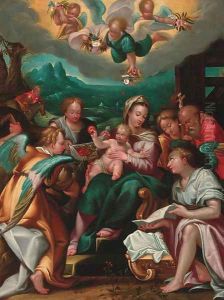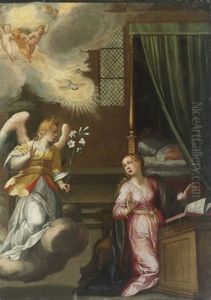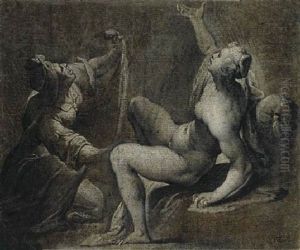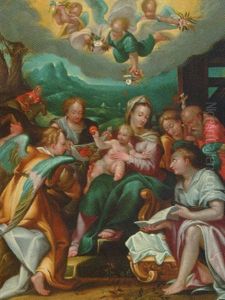Dionysius Calvert Paintings
Dionysius Calvert, also known as Cecil Calvert, 2nd Baron Baltimore, was not an artist in the traditional sense, but rather an English nobleman and the first Proprietor of the Province of Maryland, which he governed briefly in the 17th century. As such, his life is not typically the subject of an art historian's focus. Nevertheless, his contributions to the American colonies and his role in history are significant.
Dionysius was born in 1602 to George Calvert, 1st Baron Baltimore, and Anne Mynne. He was one of several children in an influential English family. His father, George Calvert, was a trusted secretary to King James I and was granted the title of Baron Baltimore. George Calvert initially attempted to establish a colony in Newfoundland but later sought to establish a new colony south of the James River (in what is now Virginia) to provide a refuge for English Catholics and to expand his family's wealth.
After George Calvert's death in 1632, the charter for the new colony, which would be named Maryland after the queen consort Henrietta Maria of France, passed to Cecil Calvert, 2nd Baron Baltimore. As the proprietor of Maryland, Cecil had almost royal authority within the colony, including the rights to land grants, justice administration, and the ability to summon a legislative assembly.
Cecil Calvert never visited Maryland himself, primarily governing the colony from England through governors. He faced many challenges, including resistance from the predominantly Protestant population in the neighboring Virginia colony, disputes over borderlines and trade, and internal strife within Maryland itself. Despite these challenges, Maryland prospered under his proprietorship, and the Calvert family maintained control over the colony for many generations.
Cecil Calvert's legacy includes Maryland's early tradition of religious toleration. In 1649, the Maryland General Assembly passed the Maryland Toleration Act, also known as the Act Concerning Religion, which granted religious freedom to all Christians in the colony. This act was one of the first laws that explicitly defined tolerance of varying Christian sects.
Dionysius Calvert died in 1675, but his influence on American colonial history continued through his descendants and the colony he helped to establish. While not directly associated with the arts, his life and actions had a profound impact on the cultural and social development of early colonial America.



